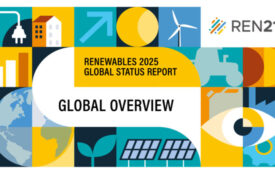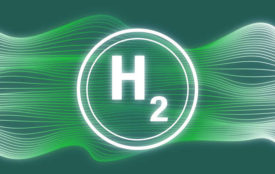The value of hydrogen in heating
To achieve climate neutrality by 2045, the heating market must decarbonise and reduce its CO2 emissions by 43% over the next 10 years – exactly as much as it did in the previous 30 years.
Against this background, Frontier Economics has prepared a study on behalf of FNB Gas that analyses various heating systems.
The study reveals that hydrogen is equally as energy efficient as alternative heating technologies when it comes to heating existing buildings during the months when heating is used most often. This holds if – in a comprehensive energy efficiency comparison – actual framework conditions in the heating market, such as outdoor temperature, building condition and the need for seasonal energy storage, are taken into account. This result is significant because:
- currently only 13% of the building stock is considered fully refurbished, i.e. 87% of the building stock is in need of refurbishment or has only been partially refurbished, and
- the heat supply must also be guaranteed in cold periods with a low supply of renewable energies, and the heating infrastructure must be designed for these periods.
Furthermore, the study investigates the implications of a comprehensive switch from today’s gas- and oil-based heating systems to electricity-based technologies for the future peak load in the electricity system.
Today, the gas system provides over half of the heat market’s energy supply, serving a heat output of over 230 GW during peak winter consumption periods. Only 5 % of the final energy demand for space heating and hot water supply is currently met directly by electricity. Accordingly, the electricity system has not yet been exposed to the demands of the heating market with enormous load peaks in cold winters.
Based on measured performance data from the gas grid, we show that the historical electricity peak load of 80 GW would more than double by 86 GW to 124 GW if there were a widespread switch to electricity-based heating technologies.
A comprehensive electrification of the heating market would thus expose the electricity system to massive challenges in terms of expanding the generation and grid infrastructure – in addition to the existing challenges arising from the phase-out of coal and nuclear energy and the expansion of renewable energies.
The use of hydrogen in the heating market can contribute significantly to solving these challenges. Against this background, the option of using hydrogen for the heating market, especially for heating existing buildings, should be maintained.
Frontier regularly advises clients on a wide range of energy and regulatory issues.








